Are you looking to obtain a locksmith license? It's an essential step for anyone wanting to establish a reputable business in this critical industry. In this article, we'll walk you through the important details of the licensing process, including required documentation and application tips. So, if you're ready to unlock the door to your new career, read on for more information!
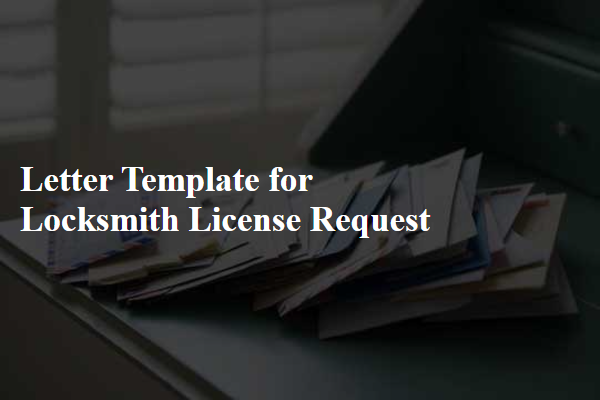
Applicant Information
Applicant information for a locksmith license request typically includes personal identification details, such as full name, date of birth, and address. The full name may consist of a first, middle, and last name, providing clear identification. The date of birth, formatted as MM/DD/YYYY, establishes age eligibility, while the physical address must include the street name, number, city, state, and ZIP code, ensuring proper jurisdiction. Additionally, providing a Social Security number can be required for background checks. Contact information, including a phone number and email address, allows for effective communication throughout the licensing process. Background information related to previous licensing or any criminal history also plays a crucial role in the evaluation of the applicant's suitability for obtaining a locksmith license.
Business Details
A locksmith business, such as "SecureLock Solutions," requires a valid locksmith license issued by the state regulatory agency. Documentation includes proof of business registration, such as a Certificate of Incorporation or DBA (Doing Business As) filing, indicating the business name and ownership structure. Additionally, a background check is mandatory, focusing on criminal history and prior professional conduct in the locksmith trade, which may include felonies or misdemeanors, depending on state regulations. Proof of liability insurance, typically around $1 million in coverage, protects against damages incurred during locksmith services. Furthermore, the application often necessitates references from other licensed locksmiths, signifying industry credibility and professional relationships. Each state varies in its requirements and processing times, generally ranging from several weeks to a few months for license approval.
Licensing Requirements
The process of obtaining a locksmith license involves several critical steps across various jurisdictions. Each state may have unique requirements, including age restrictions (often 18 years or older), necessary training or apprenticeship programs lasting a minimum of six months and coursework covering locksmithing skills, business practices, and legal standards. Applicants typically need to pass a criminal background check, submitting fingerprints to local law enforcement agencies or the FBI, which can take several weeks. Additionally, proof of general liability insurance may be required to protect against damages during service work. Documentation such as a completed application form, proof of residency, and any state-mandated fees must accompany the submission for review. Finally, some regions may entail an examination focusing on locksmithing knowledge, ensuring all licensed professionals meet the specific industry standards necessary for effective and safe practices.
Background Check
A locksmith license application requires a comprehensive background check to ensure the integrity and trustworthiness of the applicant. Background checks typically examine criminal history, including felonies and misdemeanors across various states. High-profile incidents related to burglary or theft could potentially disqualify an applicant. Additionally, financial history may be scrutinized, including bankruptcies or fraudulent activities that could raise red flags about the applicant's reliability. The process may involve searching databases maintained by law enforcement agencies, which can take several weeks, depending on the jurisdiction. Authorities may require fingerprints to cross-reference against national and state crime records, ensuring a thorough vetting process. Overall, this background check is crucial for maintaining safety and security standards in the locksmith profession.
Payment Information
To obtain a locksmith license, applicants must provide payment information for associated fees. The application fee typically ranges between $100 and $300, depending on state requirements and regulations. Accepted payment methods often include credit cards, money orders, or bank checks made payable to the respective licensing authority. Additionally, some states may require a background check fee, which can add approximately $50 to $100 to the total cost. Payment information must be submitted alongside the application form to ensure timely processing. It is crucial to confirm the specific payment guidelines outlined by the local regulatory body to avoid any processing delays.
Letter Template For Locksmith License Request Samples
Letter template of locksmith license correction for personal information
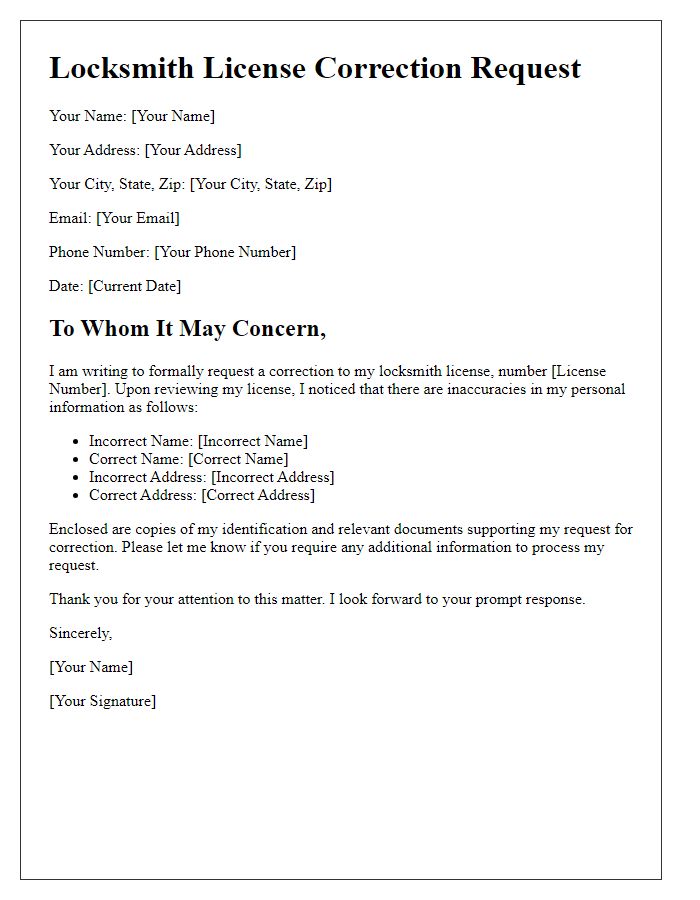

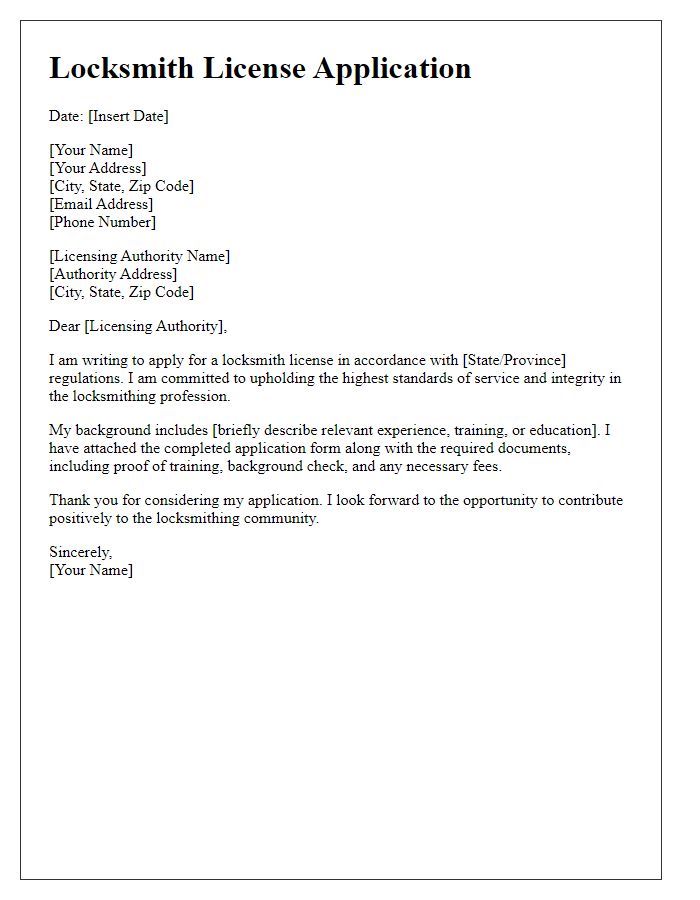
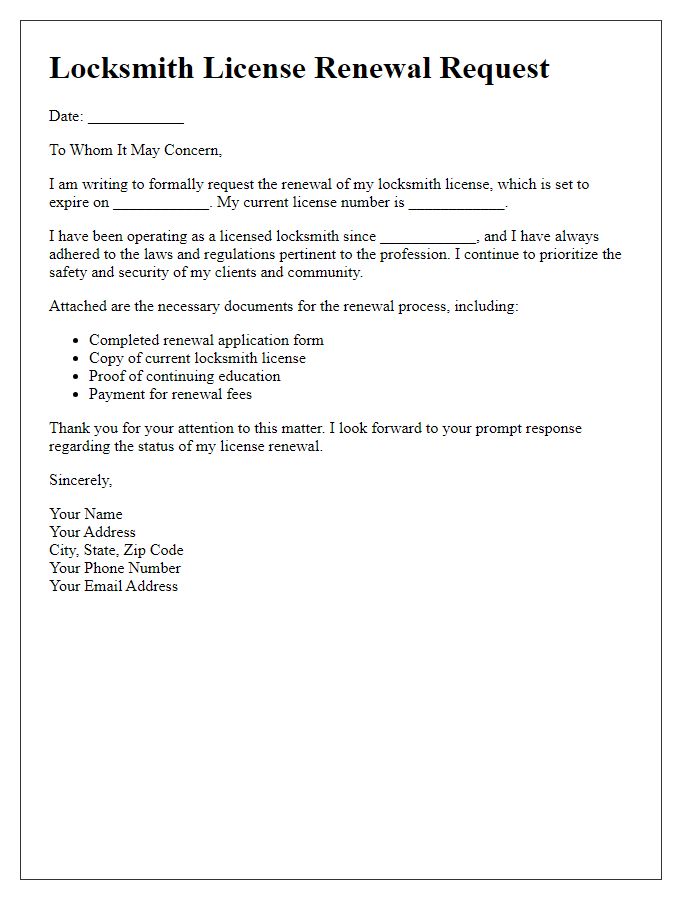
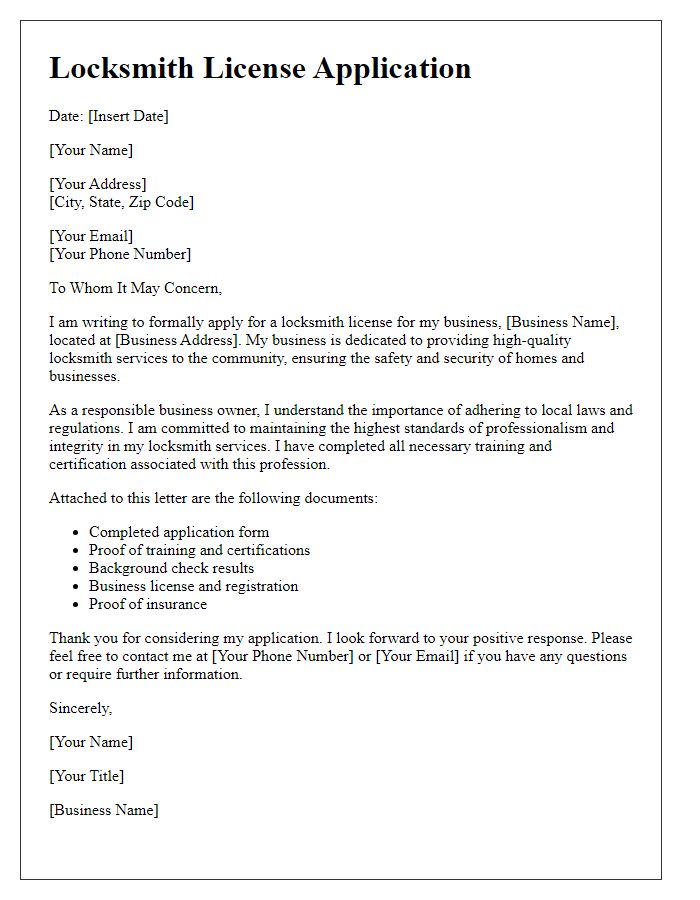
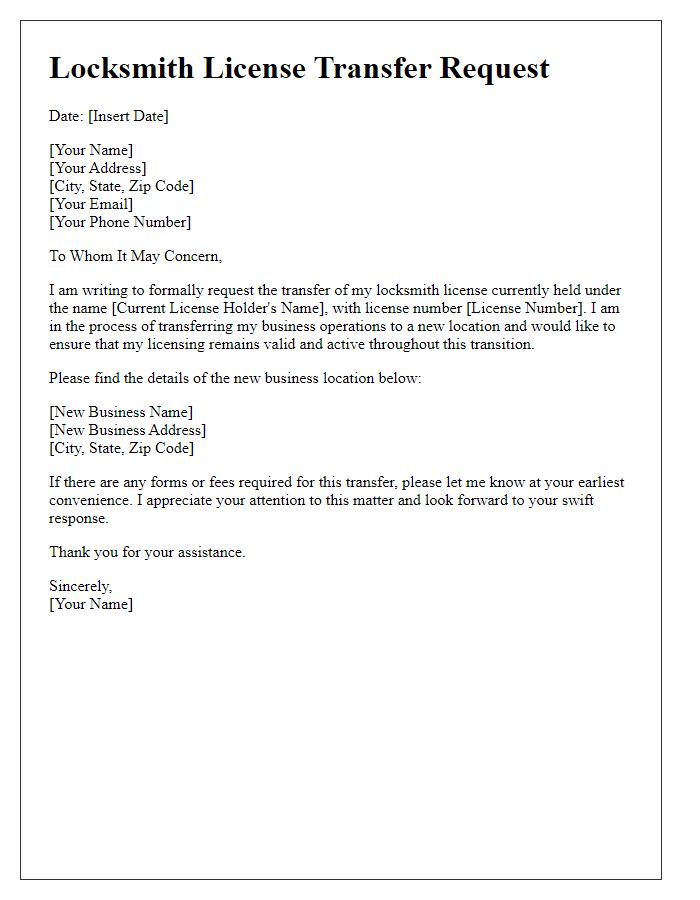
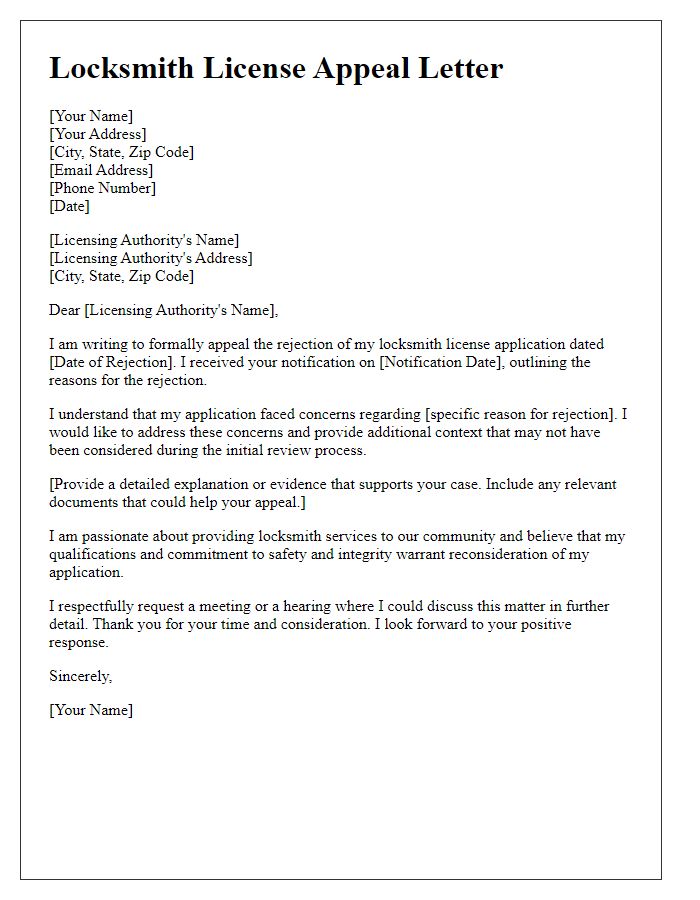
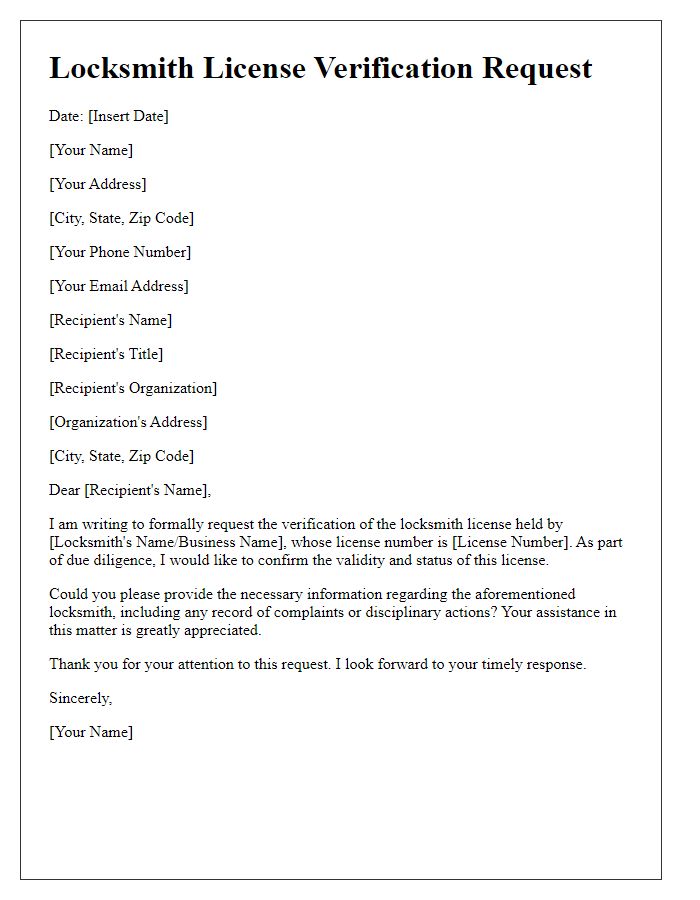
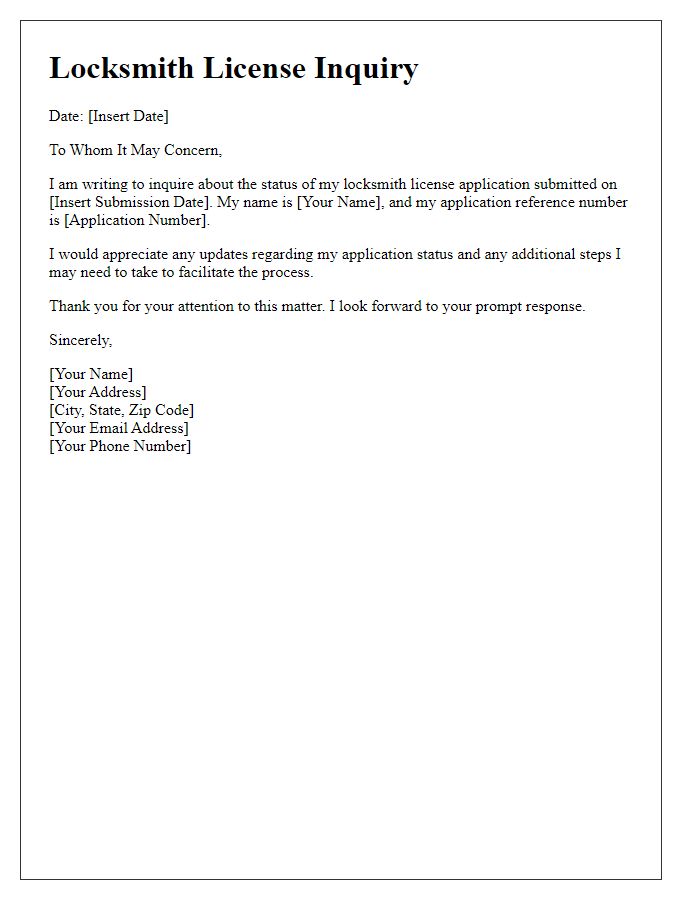
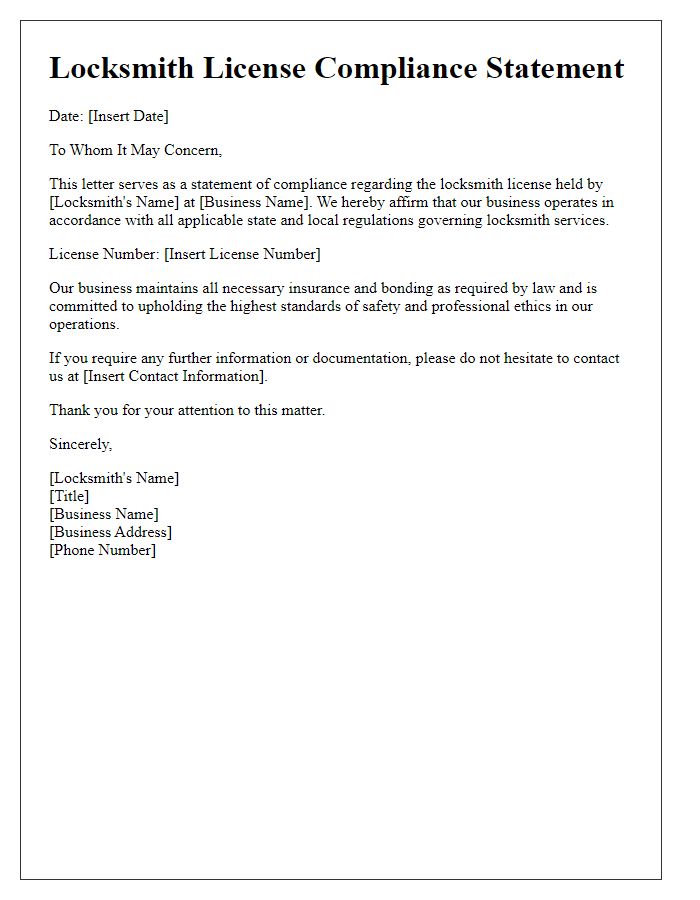
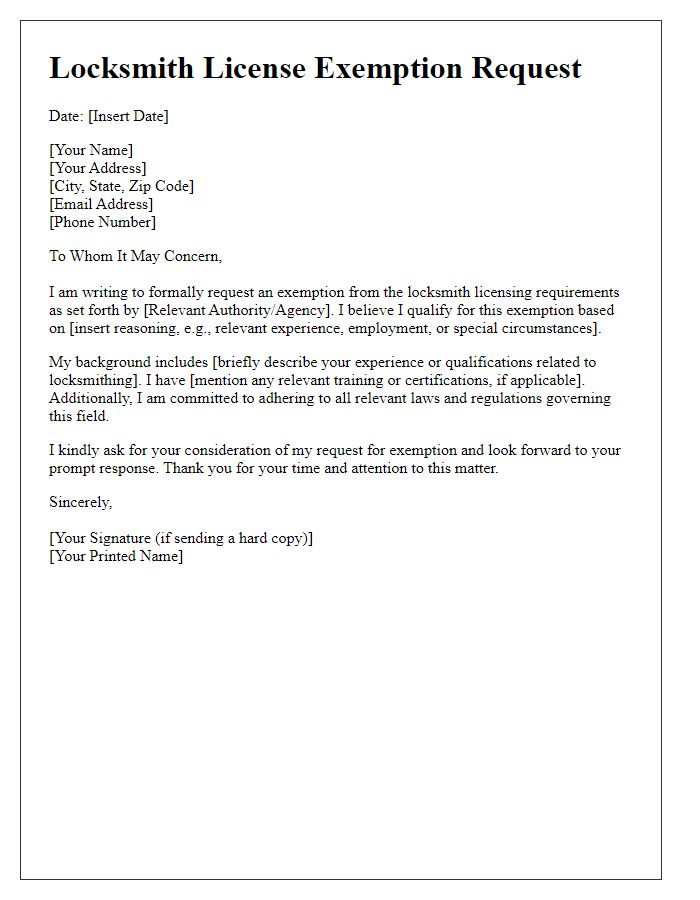

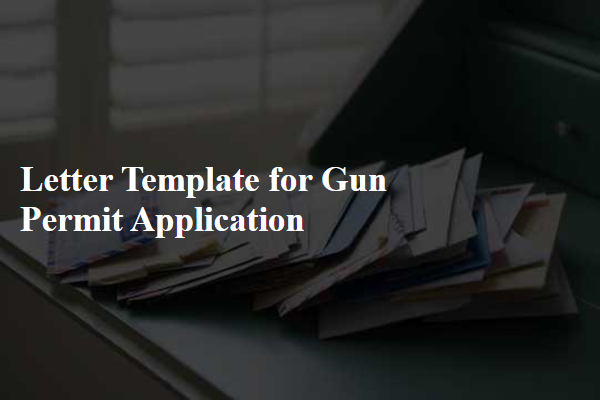
Comments